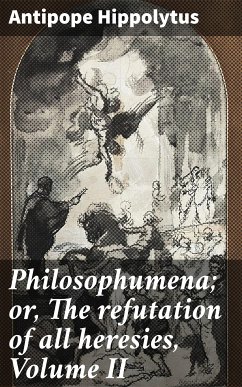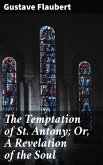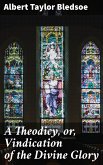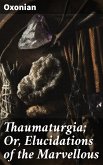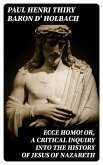In "Philosophumena; or, The Refutation of All Heresies, Volume II," Antipope Hippolytus presents a comprehensive examination of early Christian heresies, exploring their philosophical underpinnings and theological ramifications. Written in a methodical style that combines polemical discourse with scholarly rigor, this work reflects the intellectual struggles of the early Church as it sought to establish its orthodoxy. The text is rich in historical context, drawing from various sources to dissect the beliefs and practices of heretical sects, while also serving as a crucial commentary on the formative centuries of Christian thought. Hippolytus employs a systematic approach, categorized discussions leading to compelling analysis of the moral and spiritual implications of these deviations from accepted doctrine. Hippolytus, a significant figure in the early Christian hierarchy, faced the challenges of presiding over a period marked by theological discord and political strife. His deep commitment to defending the faith and his firsthand experience of the controversies within the Church uniquely positioned him to tackle the complexities of heretical teachings. His authoritative voice resonates through the text, embodying both pastoral concern and scholarly authority, shaped by his own experiences of persecution and defiance. This pivotal work is essential for scholars and general readers alike who seek to understand the foundations of Christian doctrine in the face of dissent. "Philosophumena" is not merely a historical text; it provides insight into the resilience of early Christian thought and its struggle against misinterpretation. Recommended for all those interested in the theological battles that forged the Church, it invites readers to reflect on the legacy of orthodoxy through the lens of philosophical debate.
Dieser Download kann aus rechtlichen Gründen nur mit Rechnungsadresse in A, B, BG, CY, CZ, D, DK, EW, E, FIN, F, GR, H, IRL, I, LT, L, LR, M, NL, PL, P, R, S, SLO, SK ausgeliefert werden.

